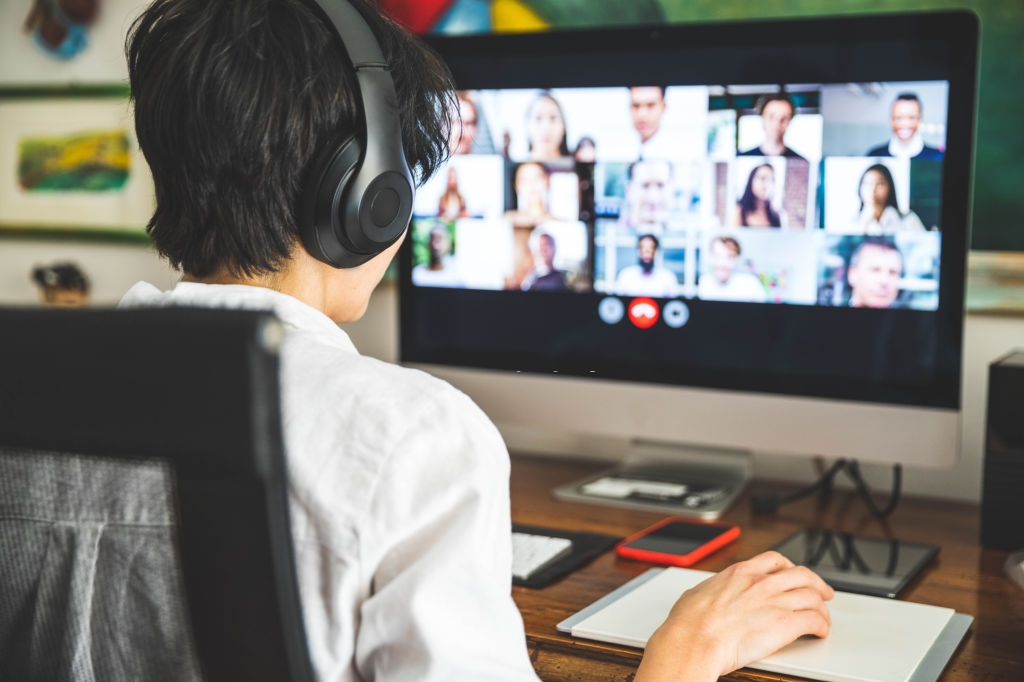Suddenly, the world as we all know it has changed. Before COVID-19 everyone was adapting to the new opportunities offered by technology and automation. Businesses, educational institutions, health services, and people working from home were planning how to slowly integrate these into their daily routine.
Along came the pandemic, and the future was suddenly upon us. Everyone, from children to the elderly had to adapt to the new reality. Parents were suddenly forced to work from home. Suddenly they had to juggle virtual meetings with housework, child care, and schoolwork. Business activities in bricks and mortar stores were restricted and people shifted to online transactions. Health services also went online wherever possible. The world has changed, and the question we are all asking is: Has the way we do business changed forever?
The massive shift from open working conditions to restricted ones
As the whole world turned to remote work, except for those in essential services, millions of people have turned to web conferences, online work, and e-commerce. Even though working from home is nothing new, it has suddenly lost its negative connotations and has become the new norm. Google and Microsoft are some examples of companies that are encouraging their staff to adopt work-from-home, but then again, their workforce is already geared up for remote work.
However, businesses have suffered from the restrictions implemented and have seen a huge drop in the number of feet entering stores daily. They have also had to restrict the number of people entering due to social distancing measures.
This includes that employees should wear the best face mask. Fewer people should be allowed in the stores at one time, placing of markings on their floors to encourage social distancing, and ensuring customers sanitize their hands as they enter and leave their stores.
Sneeze guards were also adopted by many businesses to ensure a safe working environment for their staff and customers. In offices, a sneeze guard offers a protective barrier in office reception areas, and between office workers. In businesses, a sneeze guard offers protection at cashier counters and food service counters.
Low-down of business activities
One of the most important things that have emerged from COVID-19, is that businesses will have to establish resiliency as part of their strategies. Business models will need more than just a tweak, they will need to be thought over again.
This is especially important in the supply chains which ensure a supply of raw materials, components, and even basic consumer goods. Many companies were caught unprepared and were hit by the impact of the crisis. On the other hand, some companies had structures in place allowing them to have mapped out supply chain networks, instant information to them managing to secure inventory on time.
Backup and safety plans will now be essential for all businesses so that they are prepared for any future disruptions. These may need to be strengthened or rebuilt but will become as important as cost and efficiency are in their strategies. Businesses will also have to expand the ability of their employees to work remotely.
Business strategies will change, even as restrictions are eased. The emphasis will be on eliminating human contact wherever possible. These changes will be inevitable across the whole business sector from manufacturing to selling. It will also affect services like education and medicine.
The positive outcomes of these changes are that businesses and services are learning to connect in more efficient ways. They are also finding faster and more cost-effective ways to operate.
Threats for some offer opportunities to others
During the spread of the coronavirus pandemic, the only industries that saw a growth in sales figures were the food and pharmaceutical industries. The demand for food, masks, gloves, antibacterial soaps, sneeze guard protectors, and sanitizers increased tremendously. The sale of clothing, electronics, and other non-essential goods just deflated.
However, technology ensures that some sectors thrived and will continue to do so as things return to normal. Video conferencing use has increased and is set to stay strong. Remote learning has flourished through software portals, and it is expected that online education platforms will continue to grow, even from employees looking to pick up new skills.
Also, online gaming is burgeoning and is expected to continue its growth long after lockdowns have ended. Surprisingly, car sales are also expected to rise as commuters will prefer a safer form of transport.
Imperative things become insignificant and minor things become consequential including sneeze guards
For consumers, there has been a huge shift in how important consumer items suddenly became insignificant to them, while others became extremely significant.
- Face Masks were never an important item on shopping lists, nor were hand sanitizers.
- During the height of the pandemic, they became difficult to source and their price suddenly increased.
- Very few businesses had thought of installing a sneeze guard before, and suddenly the demand for the product has increased.
Post pandemic, consumers, and businesses will have implemented some changes that are set to stay forever. We might not continue wearing face masks in a year or two, but we will all be washing and disinfecting our hands more often. Businesses and offices that have put up sneeze guards are also likely to continue their use as an extra preventative measure well into the future!




